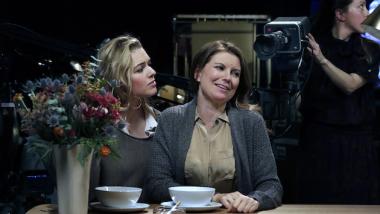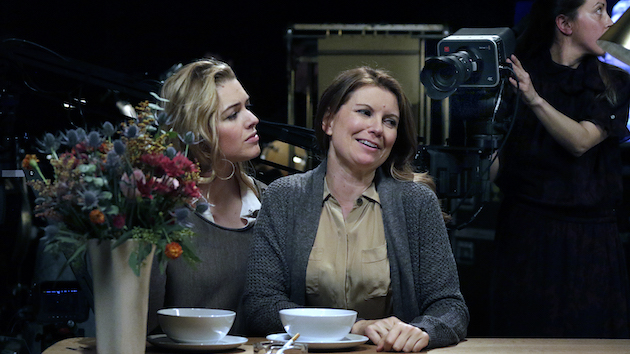
Many of the films of Ingmar Bergman suggest their viability as stage productions, even operas. His penetrating 1966 psychological labyrinth, Persona, however would not seem an obvious choice, since it involves one principal character who speaks incessantly and another who is totally silent.
Persona nevertheless began its journey to opera in 2010, thanks to a pair of MIT buddies — director/librettist Jay Scheib and composer Keeril Makan, who, with support from Beth Morrison Projects, have workshopped the opera for years. On Thursday, in collaboration with Los Angeles Opera, it finally received its first, full staging at the Cal Arts REDCAT theater.
The performance featured mezzo-soprano Amanda Crider as Sister Alma, the nurse who is assigned to care for a renowned actress, Elisabet Vogler (Lacey Dorn), who has inexplicably lost the ability to speak (or made the conscious decision not to). In the film, Bibi Andersson played Alma to Liv Ullman’s Elisabet.
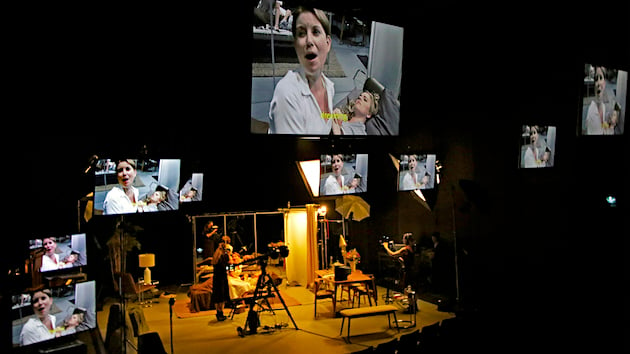
The libretto sticks exceedingly close to Bergman’s original screenplay. At the outset, Alma doubts whether she is up to the task, confiding her doubts to the clinic’s doctor (sung by Peabody Southwell). From that point on an emotional power struggle transpires (somewhat reminiscent of Henry James’s Turn of the Screw) that ultimately shakes both women to their cores. Their clash ultimately results in a blending of personalities. It’s also a realm of shadowy enigma, where questions are raised and deep personal secrets revealed.
Anyone familiar with Bergman’s films knows that silence is a recurring theme, whether it is the silence of God, the corrosive silence of secrets, the silence that separates individuals, or the silence that causes us to view the world as “through a glass darkly.”
In Persona, Bergman also incorporates jarringly surreal montages and shots of the filmmaking process itself in order to create a Brechtian jolt, reminding the audience that they are experiencing cinema, without flesh-and-blood reality. The opera production achieves the same jarring effect by using an elaborate forest of video monitors and three onstage camera operators. Our eyes constantly shift between the singers and their glowing, digital counterparts on multiple screens.
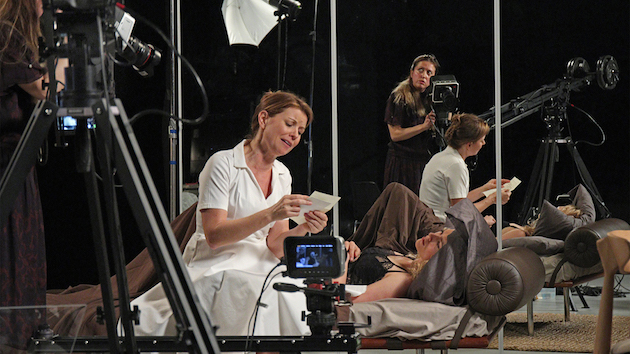
Another important element of the film (and, to its credit, the opera) is that it’s set during the chaos and carnage of the Vietnam War. That reality that makes its presence felt in a devastating scene when Elisabet, alone in her darkened room lit only by a television, witnesses the self-immolation of a Buddhist monk on the streets of Saigon. Might not anyone in a world gone this mad, Bergman suggests, choose to retreat into silence? Or, as Joseph Conrad refers to it in Heart of Darkness, “the horror.”
The opera skillfully explores these elements in a musically diverse, engrossingly dramatized ways suffused with Brechtian alienation. The composer’s original orchestration called for an ensemble of 16 players. Thursday, that number was reduced to eight. And there were times when the reduced orchestra was simply incapable of producing the level of color and force the work needed. That being said, the instrumentalists, conducted by Evan Ziporyn, did the piece justice.
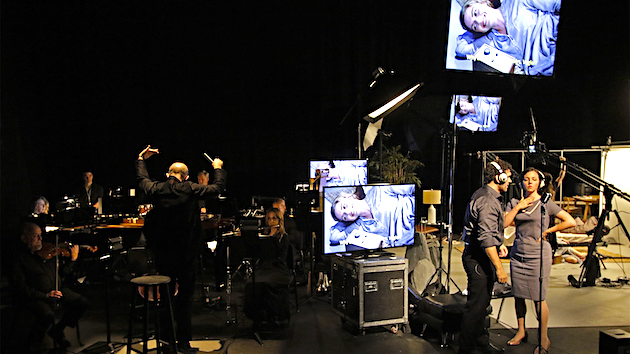
Makan’s score contains a wide variety of sounds from metallic clangs and bangs, to cool, post-minimalism and glistening, high-pitched effects. He also introduces familiar baroque melodies which are then broken into shards.
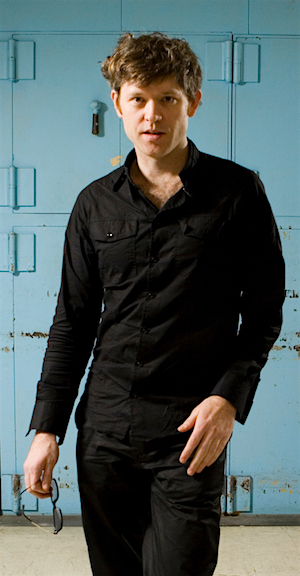
According to Scheib, the show’s many rehearsals were videotaped so Crider and Dorn could view their performances again and again, until they could be repeated with the precision of a choreographed ballet. This was particularly important for Dorn, who has to convey the depth of her character’s emotions without uttering a word.
Several key moments in the film are presented to full advantage in the opera: Alma’s detailed description of an erotic encounter with two young boys on a beach; the confrontation with Elisabet in which Alma accuses her of wishing her son (who appears in the film but not the opera) had died at birth; and the final knockdown-drag-out brawl when Alma finally beats Elisabet into uttering a single word — “nothing.”
As in the film, the opera skillfully depicts the gradual merging of the two women’s personalities as their peculiar relationship grows— one constantly talking, the other constantly listening. And in a shocking scene near the end of the opera, Elisabet cuts Alma’s arm and sucks her blood in a moment of vampire-like connection.
Crider’s performance was a tour-de-force for its sustained vocal luster, dramatic variation, and sheer amount of singing. In contrast, Dorn wore all her emotional variations on her face alone, without the advantage Bergman had of waiting for exactly the take he wanted.
Southwell and Joshua Jeremiah supplied supporting roles as the clinic’s doctor, Alma’s husband-to-be, a shadowy phantom lover, and voices from a radio.
Persona is the sixth collaboration between Beth Morrison Projects and L.A. Opera. It’s a combination that continues to bear fruit and provide L.A. Opera with a way to explore more experimental productions.

